Rabbits are the most adorable pets and a complete joy to have. The main portion of your rabbit’s meals in a day should be fresh hay. Additionally, your rabbit needs clean water and fresh grass. However, they also love eating fresh vegetables and fruits and you can offer these regularly as components of a balanced diet. This may make you wonder: can rabbits eat tomatoes?
Can rabbits eat tomatoes?
Yes, they can eat the fruit part, but in moderate amounts only. Don’t feed excess tomatoes to your pet rabbits because these fruits may cause various health problems.
Rabbits and tomatoes
The fruit of the plant is safe for rabbits; however, there is likely to be a problem if your rabbit eats too much of it due to the high sugar content. Tomatoes are not recommended food for rabbits as any foods with high starch or sugar content may lead to digestive problems such as bloating and diarrhea. Rabbits usually eat almost anything they are given, but you must not let them near tomato plants as they are harmful for their health.
Starch and sugar are fermented easily and lead to the rapid growth of bad bacteria. This causes changes in the stomach’s pH and ultimately cause diarrhea.
The best diet for your rabbit
For your rabbit to remain healthy, you must ensure that its main food comprises forages such as alfalfa and timothy hay.
The natural food that should form a large proportion of your rabbit’s diet is hay. The common understanding that vegetables are the staple food for rabbits is not correct. The reason is that good bacteria have a symbiotic relationship with rabbits. They ferment the fiber content found in hay in the rabbit’s stomach and provide them essential nutrients including protein, vitamin B and several other nutrients that are essential for the rabbit’s health.
Another healthy food for rabbits is soy free, grain based commercial rabbit feed. This usually contains flax seed and additional minerals and vitamins. Adding this to your rabbit’s meals in the long-term will ensure your pet rabbit has a healthy and long life.
Another very important element of your rabbit’s healthy diet is fresh grass. You should not use grass trimmings from your lawn left over from your lawn mower.
Baby rabbits are different
Baby rabbits have slightly different requirements that include mother’s milk and low-starch, high-fiber foods essential for their healthy growth. It is critical to maintain a balance within the various elements of your baby rabbit’s meals as any unbalance can lead to an upset digestive system.
Drinking water
Fresh and clean drinking water is also extremely important for your rabbit. Use a shallow container so that your rabbit can drink from it easily. You must be careful that you rinse the container and replace the water daily.
If you follow these recommendations, this will ensure that your rabbit enjoys good health in the long-term. Not only will your rabbit be more active and playful, it will feel and act well.
Introducing new foods
Just like people, rabbits are sometimes unable to manage some foods. While introducing a new vegetable to your rabbit’s meals, you must be very careful because too much of a new food that your rabbit cannot digest can make it seriously ill. When you introduce it for the first time, give a little portion only and observe it for the next day. If the rabbit passes soft stool, this means that the rabbit has been unable to digest it properly. You must remove this food from your rabbit’s meals and try something new only after it has settled down and recovered completely. The advisable waiting time is five to seven days.
The right vegetable quantity
The right quantity of vegetables for your rabbit depends on its size and personal eating habits. Once you have it for a longer period, you will be able to understand how much food is right for it. A general rule is that if the weight of your rabbit is approximately 2.5 kg, you should feed it between one and a half and two and a half cups of fresh vegetables daily.
Why should rabbits eat fresh foods?
Fresh foods, whether they are grass, fruits or vegetables are important for rabbits as they provide a variety of minerals, vitamins, additional fiber and other essential nutrients. The variety of taste, texture and flavor makes the rabbits’ meals interesting and also encourage them to forage and explore foods in a natural manner. Several vegetables, plants and herbs are appropriate and safe for them to be given daily while others should only be offered occasionally, as treats.
Which vegetables are good for rabbits?
All vegetables that are bulbs, seeds or tubers are often toxic for rabbits or bad for them due to the high levels of starch found in them. These include onions, potatoes and peas. Roots and fruits often have high sugar content and may be added in small quantities only, such as carrots, pineapple and tomatoes. The green leafy portions of flower buds, leaves and stalks are the best for rabbits as they are high in fiber and low in calories. Some of these are broccoli, spinach and cauliflower heads. Seeds are often not appropriate for rabbits.
Conclusion
To return to the initial question, can rabbits eat tomatoes? The answer is yes, but only as treats to be offered in small quantities and only occasionally.
Additionally, always observe your pet when introducing new foods to its diet. Start out gradually with tiny pieces first. If your pet doesn’t show any adverse effects, you can continue giving it new treats.
References:
http://forums.rabbitrehome.org.uk/showthread.php?149609-Can-rabbits-eat-tomato
https://riseandshinerabbitry.com/2012/02/26/safe-food-list-for-rabbits/
http://www.rabbitwelfare.co.uk/resources/content/info-sheets/safefoods.htm
http://www.therabbithouse.com/diet/rabbit-plants-vegetables-fruits.asp
https://www.saveafluff.co.uk/rabbit-info/safe-foods-for-rabbits


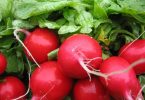
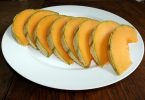
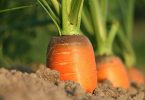
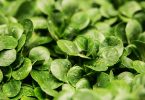
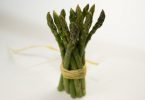
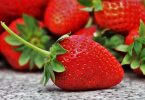
Leave a Comment